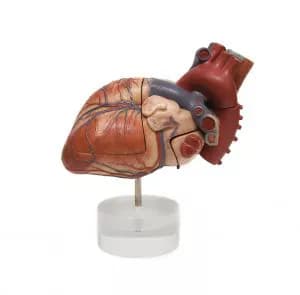
World First MRI Study Sheds Light On Heart Damage During Kidney Dialysis
Experts in magnetic resonance imaging (MRI) and kidney disease have carried out the first ever scans to study the heart function of kidney patients while they are having dialysis treatment.
People with kidney failure need regular dialysis to remove fluid and waste products from their blood, but this process can cause falls in blood pressure and reduced blood flow to the heart. Over time this can cause long-term damage to the heart.
Research at The University of Nottingham was undertaken to investigate stress on the heart during kidney dialysis and to compare two different types of dialysis in this regard: standard haemodialysis (HD) and hemodiafiltration (HDF), a process that removes more fluid during treatment but with additional replacement fluid being given to the patient.
Experts from the University's Sir Peter Mansfield Imaging Centre (SPMIC) and the Centre for Kidney Research and Innovation (CKRI) carried out MRI scans on 12 kidney dialysis patients who were each allocated to receive both standard haemodialysis (HD) and HDF in a random order.
The study found significant cardiovascular effects with both standard haemodialysis and HDF, but no differences between the two. Results demonstrate that cardiac MRI can be a vital tool for evaluating future improvements to dialysis treatment.
Professor of Physics, Sue Francis, said: "This is the first time that MRI has been used to look at heart function while the kidney patient is actually undergoing dialysis. There were several hurdles to overcome to achieve this. We had to set up a dialysis machine in our MRI research centre, change the metal needles that go into the patient to non-magnetic silicone ones, extend and insulate the lines that connect the patient to the dialysis machine and position the equipment using our knowledge of the magnetic fields in the MRI unit."
Professor of Medicine (Nephrology), Maarten Taal, said: "Using this unique set-up we were able to monitor multiple cardiovascular measurements while dialysis was taking place in the patients. We measured how many litres of blood were pumped per minute by the left ventricle of the heart, how well the heart muscle was able to contract, blood flow in the coronary artery which supplies the heart muscle and myocardial perfusion to check the efficiency of blood flow to the capillaries or tiny blood vessels in the heart muscle."
"Interestingly, we found all measures of systolic contractile function fell during both standard haemodialysis and haemodiafiltration with partial recovery after dialysis. All patients showed some degree of left ventricular dysfunction and blood flow to the small capillaries in the heart muscle decreased significantly during both types of treatment. Our observations confirm the need for interventions to reduce the negative impact of dialysis on the heart."
Having successfully tested this method, the research team is now aiming to test the effects of other dialysis treatments using MRI.
Materials provided by University of Nottingham. Note: Content may be edited for style and length.
Disclaimer: DoveMed is not responsible for the adapted accuracy of news releases posted to DoveMed by contributing universities and institutions.
Primary Resource:
Buchanan, C., Mohammed, A., Cox, E., Köhler, K., Canaud, B., Taal, M. W., ... & McIntyre, C. W. (2016). Intradialytic Cardiac Magnetic Resonance Imaging to Assess Cardiovascular Responses in a Short-Term Trial of Hemodiafiltration and Hemodialysis. Journal of the American Society of Nephrology, ASN-2016060686. DOI: 10.1681/ASN.2016060686
Related Articles
Test Your Knowledge
Asked by users
Related Centers
Related Specialties
Related Physicians
Related Procedures
Related Resources
Join DoveHubs
and connect with fellow professionals

0 Comments
Please log in to post a comment.